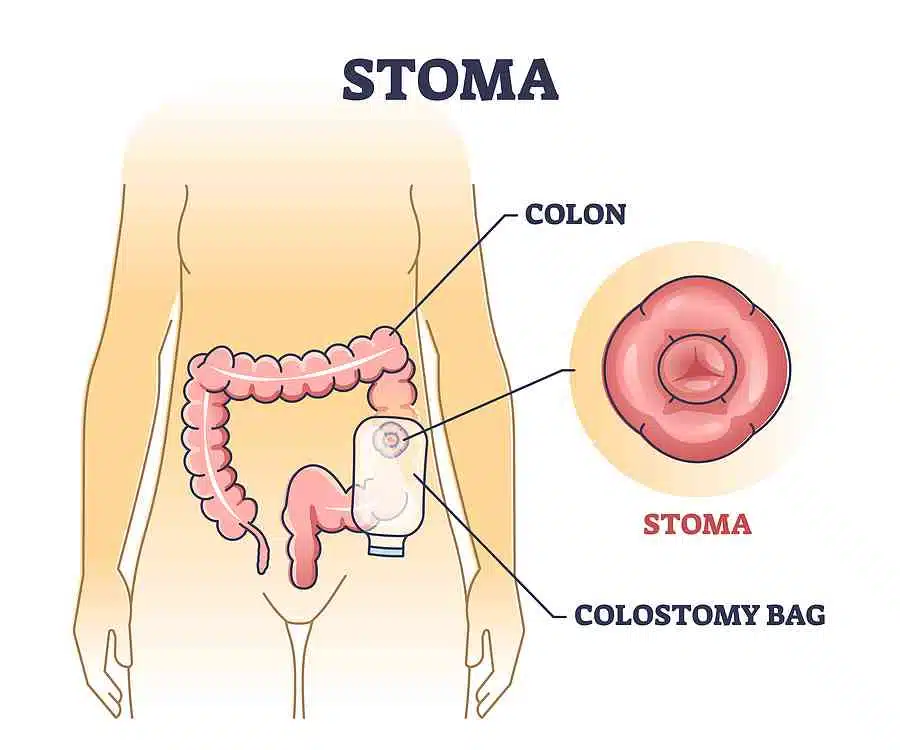A Senior’s Guide to Living with an Ostomy

Adjusting to life with an ostomy can be challenging, particularly for seniors who may already be dealing with other age-related health issues.
However, an ostomy doesn’t have to derail your quality of life. With the right guidance and resources, you can still enjoy your golden years to the fullest.
The first step to living comfortably with an ostomy is understanding what it entails and how to manage it effectively.
This article will explore various aspects of living with an ostomy as a senior, from adjusting to new routines to making life easier with specialized products and solutions.
Understand Your Ostomy Type
There are several types of ostomies, such as colostomy, ileostomy, and urostomy. Each has unique care requirements and challenges.
Familiarizing yourself with your specific type will help you understand what to expect and how to manage daily life more efficiently.
Talk to your healthcare provider about the details of your operation and any potential complications.
Dietary Guidelines: What to Eat and What to Avoid
One of the most critical areas that can impact your experience living with an ostomy is your diet.
Certain foods can cause gas, odors, or blockages, so knowing what to eat and what to avoid is essential.
Discuss with a dietitian or healthcare provider to create a meal plan that best suits your needs.
Physical Activity: Exercise Safely
While physical limitations may occur, especially shortly after the operation, keeping active for your overall well-being is important.
However, high-impact activities might not be advisable.
Consult your doctor about which types of exercise are most suitable for you, and don’t forget to wear an ostomy belt or support garment during these activities for extra security.
Skincare and Hygiene: Using a Barrier Ring Ostomy
Proper skincare is crucial when you have an ostomy. Using products like a barrier ring ostomy can help protect the skin around your stoma from irritation and leaks.
These rings create a seal between the skin and the ostomy appliance, offering you more comfort and confidence throughout the day.
Coping with Emotional Changes
Adapting to life with an ostomy isn’t just about managing physical adjustments; it also has a significant emotional impact.
Feelings of anxiety, depression, or self-consciousness are completely normal during this transition. Support from mental health professionals and ostomy support groups can offer valuable coping strategies and emotional relief.
Knowing you’re not alone and having a safe space to express your concerns can make a world of difference in your emotional well-being. Consider seeking out these supportive environments to navigate the emotional aspects of living with an ostomy.
Managing Odor and Discretion
One common concern among seniors with an ostomy is how to discreetly manage odor.
The good news is that specialised deodorising products are designed to neutralize smells, making social situations less stressful.
In terms of discretion, opt for low-profile ostomy bags and wear loose-fitting clothing to minimize visibility. These simple measures can bolster your confidence and allow you to engage in social activities without constantly worrying about your ostomy.
You can maintain your dignity and an active social life with the right products and wardrobe choices.
Travelling with an Ostomy
An ostomy shouldn’t deter you from exploring the world, but it does require some extra planning.
Always pack more supplies than you think you’ll need to account for delays or unexpected situations.
Consider the climate of your destination, as extreme heat or cold can impact the effectiveness of your ostomy appliance.
Research local healthcare facilities in advance so you’re prepared for any emergencies. Utilize sealable disposal bags for used supplies to maintain discretion.
By taking these precautions, you can enjoy your travels without the constant worry about managing your ostomy on the go.
Medical Follow-Ups and Checks
Regular medical check-ups are crucial when living with an ostomy, especially as you age and may encounter other health issues.
These appointments allow your healthcare provider to monitor your stoma, assess skin health, and make any necessary adjustments to your care plan.
You may also require occasional imaging tests or laboratory studies to ensure everything is functioning as it should.
Keep a detailed record of these visits, noting any changes in your symptoms or concerns you may have.
Providing this comprehensive information to your healthcare team enables them to offer the most accurate and personalized advice for your ongoing care.
Living with an ostomy in your senior years certainly requires some adjustments, but it doesn’t mean giving up on a fulfilling life.
You will find you simply have to adapt to the condition, as best you can
Understanding your ostomy type, paying attention to your diet, remaining active, and investing in quality products like a barrier ring ostomy can make all the difference.
Don’t forget the importance of emotional well-being and always consult with healthcare providers for tailored advice.
Life after an ostomy may be different, but it can be just as enriching and fulfilling if you take the right steps.





